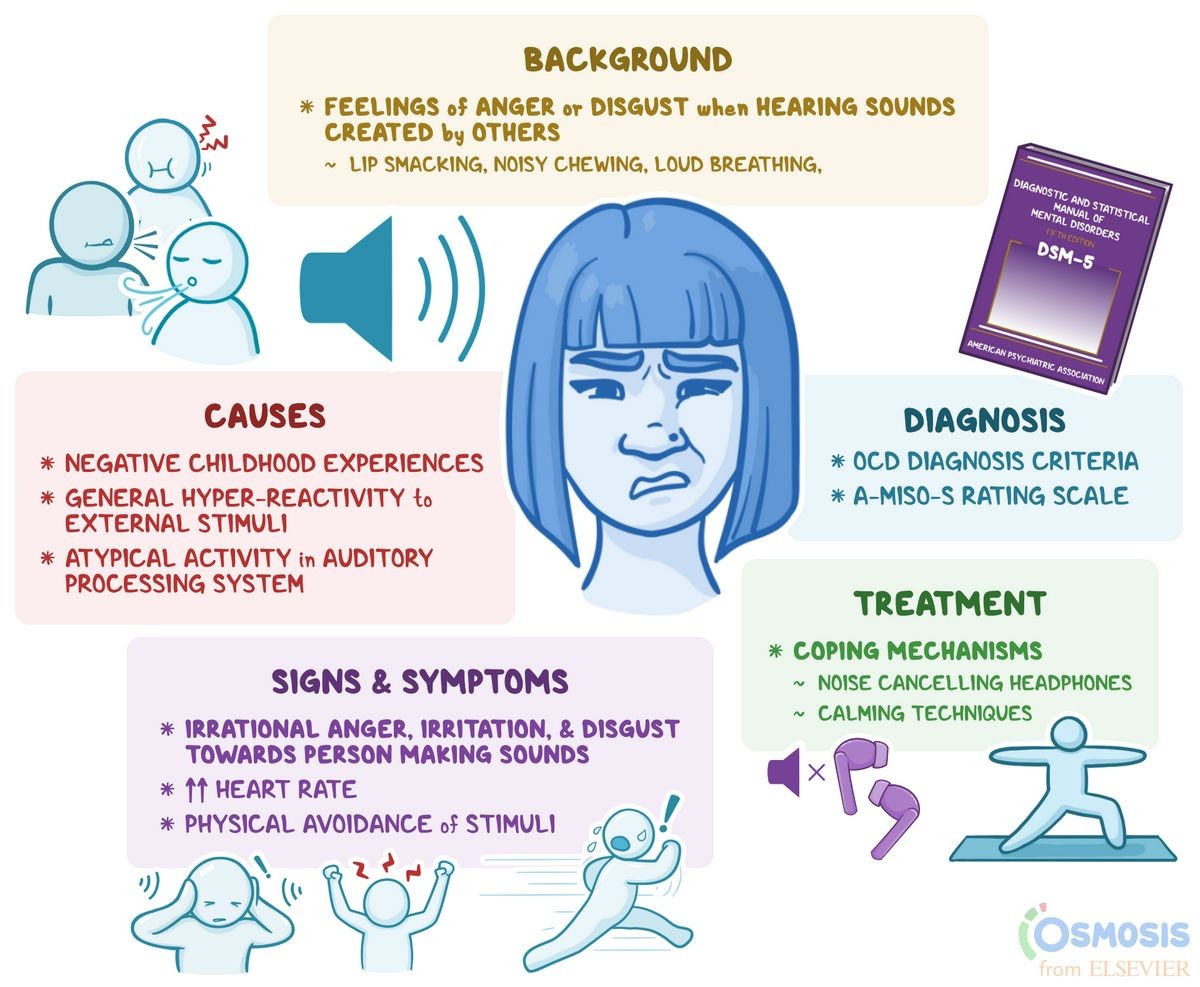
Contents
Misophonia
There are many triggers for misophonia, including loud throat clearing, snoring, teeth grinding, and slurping.
Misophonia, which means "hatred of sounds," is a source of distress and sometimes debilitation in its sufferers. It is a form of decreased sound tolerance characterized by negative reactions to specific sounds based on previous experiences.
This condition entails negative emotions like anger, agitation, and hatred of particular sounds. Misophonia is different from hyperacusis, which is a form of decreased sound tolerance due to physical characteristics of sound. It should also be distinguished from phonophobia, which refers to a fear of specific sounds.
The prevalence of misophonia in the general population is uncertain, but it has been found to occur in up to 60% of people with tinnitus. It appears to be quite common, affecting 20% of college students.
Causes and Risk Factors
The exact cause of misophonia is unknown, but it is believed to be related to the functioning of the central nervous system. It is associated with heightened anxiety and emotional reactions to sounds. People with hyperacusis are at a higher risk for misophonia.
Behavioral theories suggest that misophonia develops as a result of conditioned reactions to normal environmental sounds.
Misophonia commonly co-occurs with mental disorders such as obsessive-compulsive disorder, Tourette’s disorder, and eating disorders. Girls of prepubescent age are at higher risk for developing misophonia.
Symptoms and Triggers
Potential triggers for misophonia include snoring, wheezing, chewing with one’s mouth open, teeth grinding, and slurping.
When exposed to a trigger, a person with misophonia may react with fear, irritation, or rage. They may distance themselves or act out aggressively towards the source of the sound. The reaction escalates quickly and is out of proportion to the trigger. The sufferer usually believes their response is uncontrollable.
Diagnosis
A medical interview and physical examination are integral in diagnosing misophonia. Other hearing disorders must be ruled out. Misophonia often co-occurs with mental-health problems and may be misdiagnosed as attention deficit hyperactivity disorder or other conditions.
Treatment and Complications
There is no specific cure for misophonia, but approaches like tinnitus retraining therapy and cognitive behavioral therapy have been used with some success. Medication is not typically used.
Complications of misophonia include avoidance of triggering situations, leading to problems in relationships, school, or employment. Treatment can provide significant relief for more than 80% of sufferers.
Prevention and Support Groups
Prevention focuses on preventing complications rather than the disorder itself. Support groups are available for people with misophonia.


